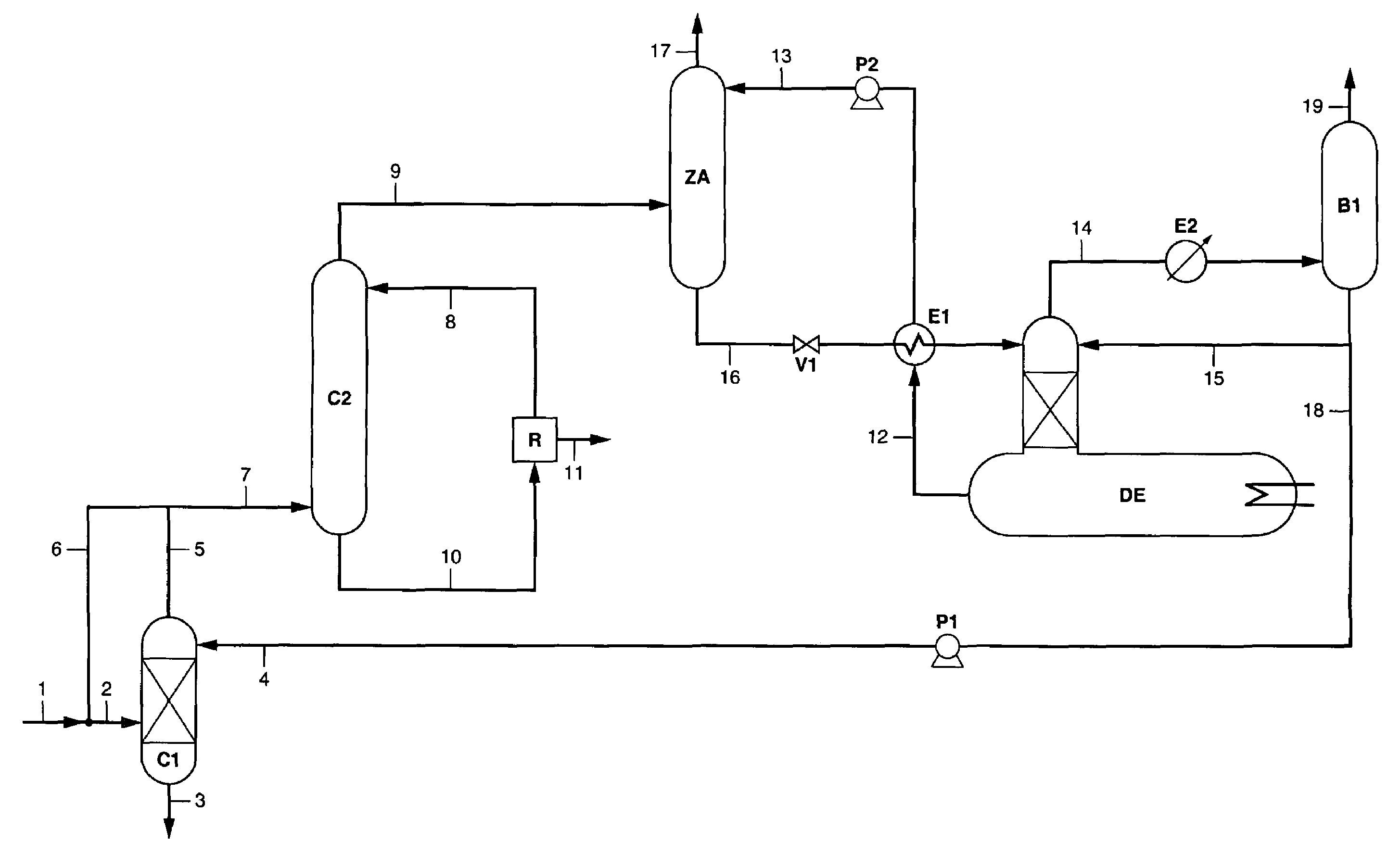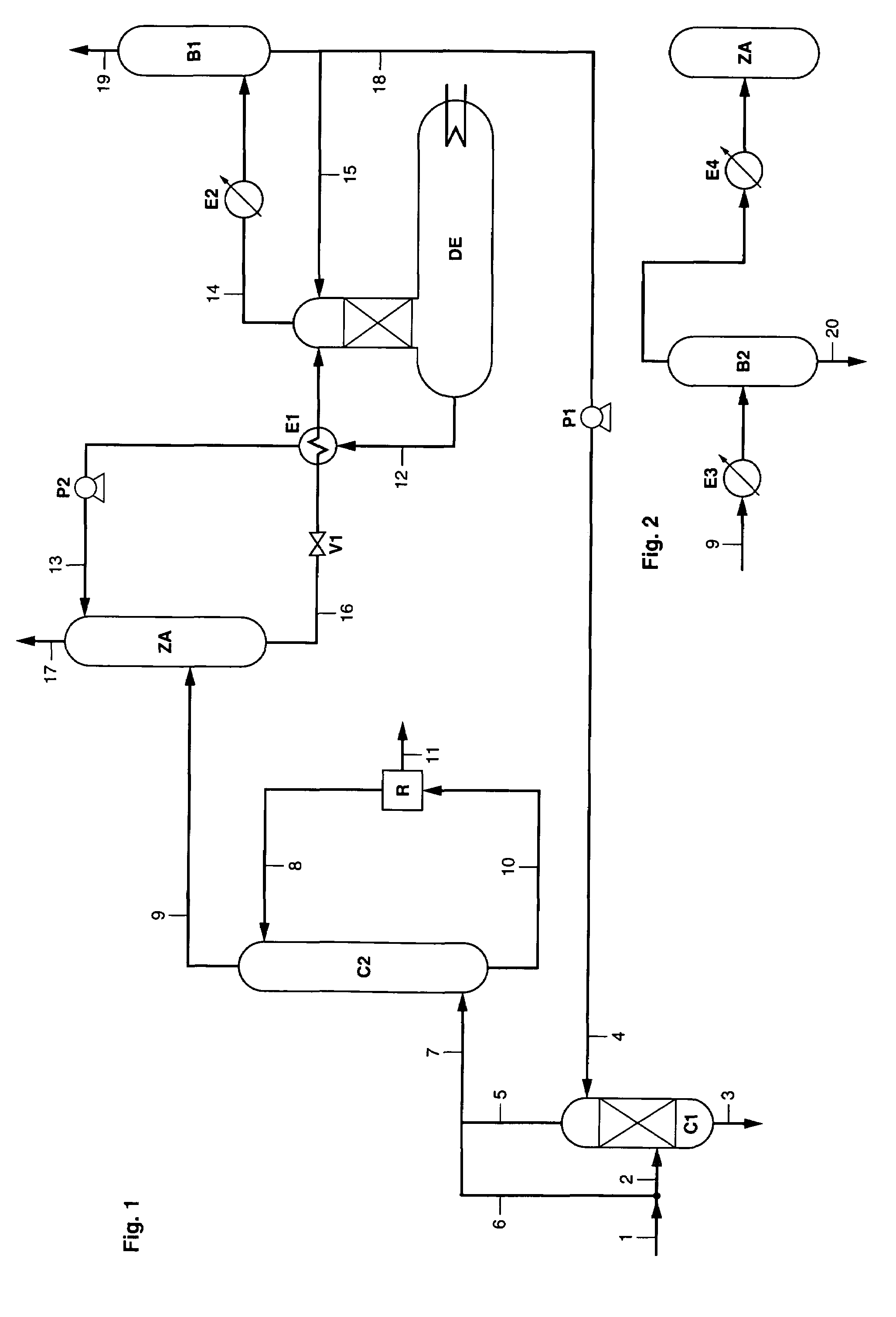Method of decarbonating a combustion fume with extraction of the solvent contained in the purified fume
a technology of combustion fume and solvent, which is applied in the direction of combustible gas purification/modification, hydrogen sulfides, separation processes, etc., can solve the problems of solvent loss, method penalization, and all the higher losses
- Summary
- Abstract
- Description
- Claims
- Application Information
AI Technical Summary
Benefits of technology
Problems solved by technology
Method used
Image
Examples
Embodiment Construction
[0028]In FIG. 1, the fume to be treated flows in through line 1. For example, the fume resulting from the combustion of natural gas, of fuel oil or of coal contains 50% to 80% nitrogen, 5% to 20% CO2, 2% to 10% O2, and various impurities such as sulfur oxides (SOx), nitrogen oxides (NOx), dusts or other particles. The fume can be available at a pressure ranging between 1 and 100 bars, preferably ranging between 1 and 5 bars, and at a temperature ranging between 20° C. and 300° C., preferably between 40° C. and 180° C. Furthermore, the fume can be saturated with water. The temperature and the pressure of the gas mixture can be controlled in order to correspond to the ideal operating conditions of column C2. For example, the fume flowing in through line 1 is subjected to compression and / or cooling. A separator drum can be used to separate a possibly condensed fraction.
[0029]A fraction of the fume can be fed through line 2 into contacting zone C1, where it is contacted with a solvent-c...
PUM
| Property | Measurement | Unit |
|---|---|---|
| pressure | aaaaa | aaaaa |
| temperature | aaaaa | aaaaa |
| temperature | aaaaa | aaaaa |
Abstract
Description
Claims
Application Information
 Login to View More
Login to View More - R&D
- Intellectual Property
- Life Sciences
- Materials
- Tech Scout
- Unparalleled Data Quality
- Higher Quality Content
- 60% Fewer Hallucinations
Browse by: Latest US Patents, China's latest patents, Technical Efficacy Thesaurus, Application Domain, Technology Topic, Popular Technical Reports.
© 2025 PatSnap. All rights reserved.Legal|Privacy policy|Modern Slavery Act Transparency Statement|Sitemap|About US| Contact US: help@patsnap.com



